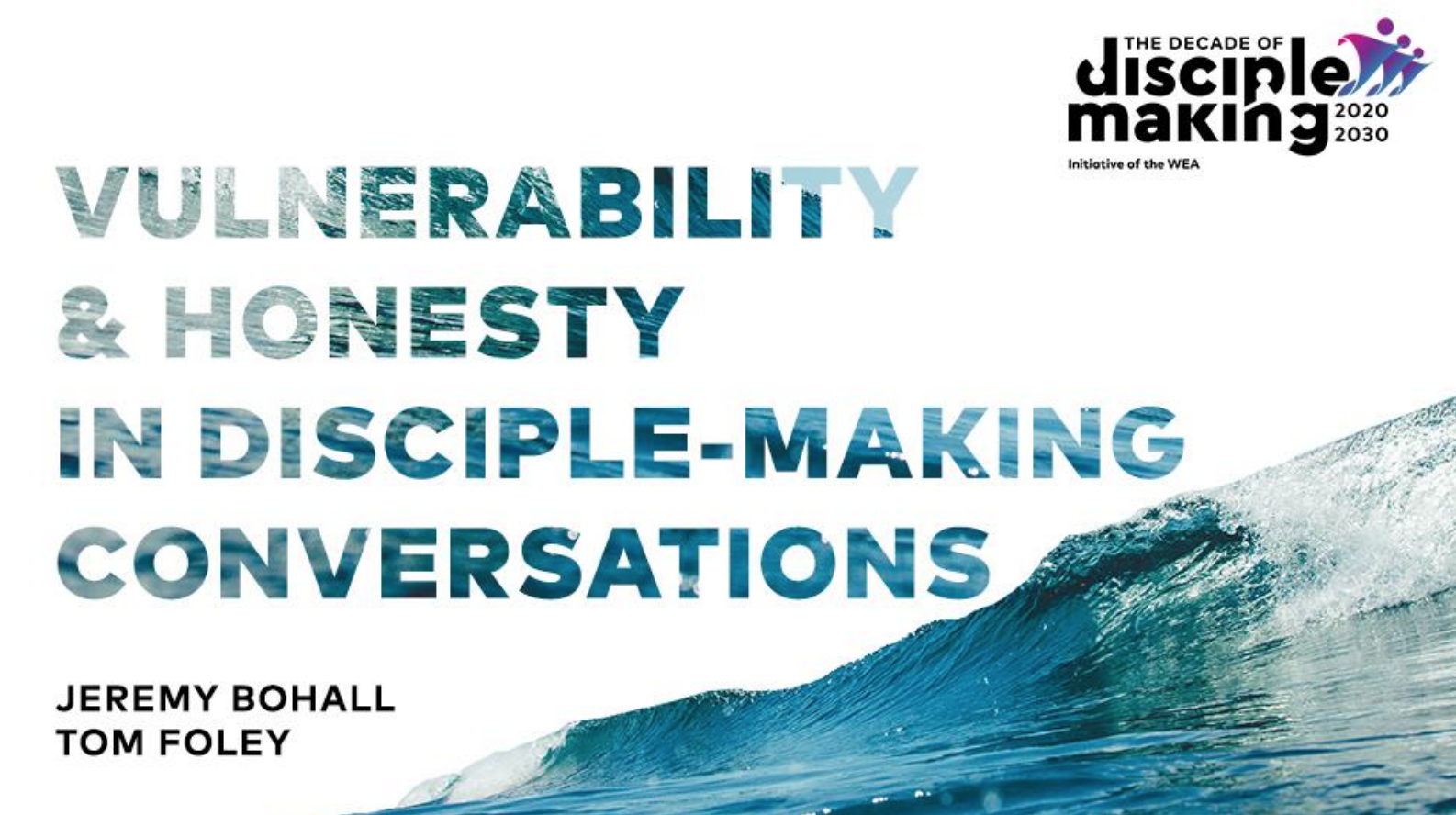Fruitful disciple-making conversations require honesty and vulnerability. But, what is the difference between these seemingly similar terms? When we urge vulnerability in conversations, we are saying that we need a willingness to open ourselves to fellow-disciples by sharing our own struggles, perhaps even to the point of revealing what may shock some.
It is important to recognize that one can be honest and remain shallow. Vulnerability makes honesty more fruitful. This kind of depth in conversation allows friends and confidants to experience the kind of deep fellowship we see in the Trinity: the love of the Father, the work of the Son, and the guidance of the Holy Spirit.
On the other hand, invulnerability, rooted in our pride, is like a wall around each person’s heart and mind. The wall has been under construction throughout our lives. For some it is high, for others it is lower, depending on our experiences, it can be quite high and thick. Climbing over these walls requires a commitment to the person through regular conversations. It also takes patience. One cannot force vulnerability any more than one can push a rope.
Where surface level honesty is easier, vulnerable honesty takes time. In newer friendships, vulnerability must be given time to deepen. We must feel safe to be vulnerable. This process takes trust, and trust – as they say – is earned. When establishing relationships with people new to our life of disciple-making, we must work hard to get a sense of how vulnerable they are willing to be, this requires careful and active listening.
Vulnerability is not limited to, but includes confession. Indeed, if there is no confession, there has been little vulnerability. Confession of sin doesn’t come naturally to us, yet it is vital. Bonhoeffer asks why it is that we often are so unwilling to admit our sin to our brother, choosing instead to simply confess to God? James urges us to confess our sins one to another. Confessing our sin to a fellow-disciple can be very helpful in breaking harmful cycles of behavior. Honest confession emerges from vulnerability.
A further imperative in these disciple-making conversations is the ability to accept godly criticism. Jeremy tells us. “It is easier for my friend to see and point out my pride than for me to see it myself. We might remain closed until we feel safe, but when we speak, we should be truthful.”
Tom says his practice is to dive as deep as a fellow-disciple is willing. “There have been persons who took several weeks to get to what we deemed a healthy willingness to share their hearts. Others are more naturally open. Where it takes a month or two with some brothers, I remember one brother who had no hesitation to dive deep into vulnerable territory. We dove into deeply meaningful conversations immediately because he was willing to trust and be vulnerable.” We must pray for discernment to know how fast we may proceed, and for the patience to wait, as did our Lord Jesus with the Twelve. To that end, vulnerable and honest conversations require time and consistency. These were keys to the disciple-making method of Jesus.
Under normal circumstances, the openness we seek will come from regular discussions. Establishing a dependable frequency of conversation deepens the knowledge that friends have about one another. Regularity builds a bond that enhances trust. The very best conversations between fellow-disciples happen over a longer period of time and, we have found, with a frequency of no fewer than two conversations each month.
Generally, to meet less frequently suppresses the kind of consistency needed for openness that is vital in these conversations. This is because after an absence, too much time is spent getting caught up on recent life events. This potentially leaves less time getting to the heart of matters to which Scripture can speak. We are describing a commitment, even a submission, to enter a relationship whose goal is to point one another to the gospel.
We want to really emphasize the importance of regular meetings that are key to the emergence of trust and vulnerability. There are walls of insecurity, of hurt and of sin that keep us apart. It is through regular time together that we slowly climb over those walls into the realm of vulnerability. It is in a spirit of submission that I join my friends regularly to practice active listening and to speak openly. It is through vulnerability and honesty that we can dig deeper into one another’s lives where our fellow-disciples remind us of the gospel. For leaders, these regular reminders about needed balance in life is imperative.
REFLECTION
- With whom are you truly vulnerable? How often?
- Which area of your life have you yet to become vulnerable about? What are you still hiding?
- What part of your story would your spouse be surprised about if they knew? God knows, but doesn’t judge you thanks to the finished work of Christ. Why are you hiding this aspect of your life?
]]>






Stay Connected